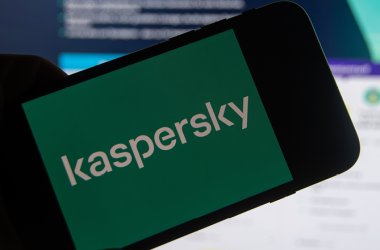
It is holiday season in many parts of the world, these days, though, going on holiday does not always mean turning back on office life – hybrid work cuts both ways.
Today’s widespread connectivity—available at airports, train stations, restaurants, hotels, and most indoor public spaces—makes staying connected easier than ever, with free Wi-Fi in many locations and reliable 4G or 5G coverage elsewhere, facilitating a seamless blend of work and leisure even while on holiday.
This increase in connectivity among travellers has not gone unnoticed by cyber criminals. Kaspersky experts analysed nearly 25,000 free Wi-Fi spots in Paris ahead of the Summer Olympic Games and Paralympic Games. The analysis revealed that almost 25% of these networks had weak or no encryption, making users vulnerable to personal and banking data theft.
Travelers often have their guard down. The unfamiliar surroundings of a new location or a different language can throw up a useful smokescreen for a cyberattack, meaning additional care needs to be taken when logging on. Fortunately, a few smart tools and habits can help you stay protected while enjoying the flexibility of remote work.
Use a VPN for secure connections
A VPN is one of the most effective ways to safeguard users’ online activity, especially when working from unfamiliar locations. By encrypting internet traffic, a VPN ensures that hackers can’t intercept sensitive data like login credentials or financial details. This is particularly important when accessing work emails or company files on public Wi-Fi, where cybercriminals often lurk.
Switch to an eSIM for reliable, secure mobile data
Another useful digital tool that provides a seamless way to stay connected using local mobile networks with no physical SIM card required is the eSIM. This is a game-changer for international travellers who want to avoid sky-high roaming charges or the hassle of hunting down temporary SIM cards in foreign countries.
With an eSIM, a user can download a local data plan before you even arrive at your destination, ensuring instant connectivity the moment you land. This eliminates the need to rely on unsecured Wi-Fi hotspots, significantly reducing your exposure to cyber threats. Plus, many eSIM providers allow you to manage multiple profiles on a single device, making it easy to switch between work and personal data plans without juggling multiple phones.
Services like Kaspersky eSIM Store enables users to purchase and activate data plans in advance, track usage and top up as needed, all from a single app.
Enable two-factor authentication (2FA)
When traveling, people often leave devices unattended. To protect against unwanted people logging in, travellers should ensure two-factor authentication (2FA) is enabled on all critical accounts and that passwords are used all devices.
Final tips for a secure summer workcation
Even with a VPN, eSIM and 2FA in place, your devices still need strong defences against malware, phishing scams and ransomware. Cybercriminals often target remote workers who may let their guard down while traveling, making real-time protection essential.
Modern antivirus software does more than just scan for viruses, it actively blocks malicious downloads, warns you about phishing attempts and even secures your passwords and financial data. For the most robust security, consider a solution like Kaspersky Premium, which combines antivirus protection, a VPN and password management into a single, easy-to-use package.
By combining a VPN, eSIM and strong antivirus, you can work from anywhere with confidence, whether you’re sending emails from a poolside or joining a video call from a festival tent. For more expert advice on remote work safety, explore Kaspersky’s Remote Work Security Guide.





